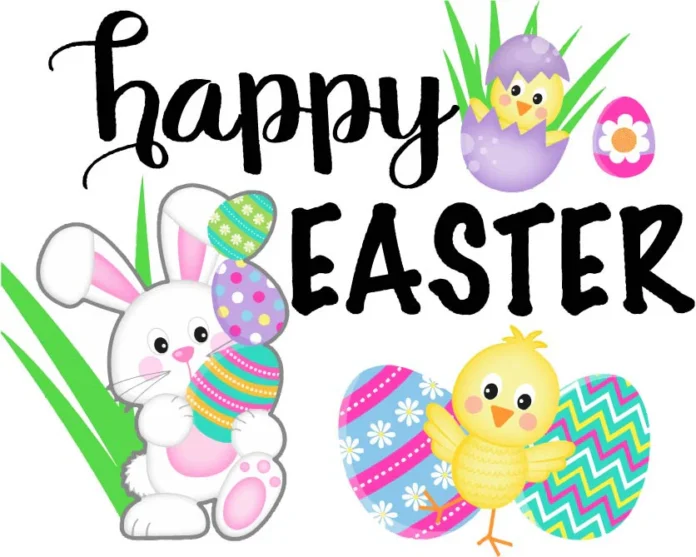As the chill of winter fades away and the flowers begin to bloom, one of the most delightful celebrations emerges—Easter! Known for its vibrant colors, joyful festivities, and rich traditions, Easter is not just a religious holiday but a celebration of renewal, hope, and the arrival of spring. This article explores the history, traditions, and modern interpretations of Easter, highlighting the significance of this cherished holiday.
The Historical Significance of Easter
Easter has its roots in Christian tradition, commemorating the resurrection of Jesus Christ from the dead. According to the New Testament of the Bible, this event occurred on the third day after Jesus’ crucifixion, symbolizing victory over sin and death. The holiday is observed on the first Sunday following the first full moon after the vernal equinox, which can fall anywhere between March 22 and April 25.
However, Easter also carries remnants of ancient springtime celebrations, predating Christianity. Various pagan cultures celebrated the arrival of spring and the fertility of the earth, often honoring goddesses of fertility, such as the Anglo-Saxon goddess Ēostre, after whom Easter is named. The intertwining of these traditions has led to the rich tapestry of customs we associate with Easter today.
Easter Symbols and Their Meanings
Several symbols are closely associated with Easter, each carrying its own significance:
- Eggs: Perhaps the most recognizable symbol of Easter, eggs represent new life and resurrection. The tradition of decorating eggs dates back centuries, with different cultures incorporating various designs and colors. The egg has become a metaphor for the tomb from which Jesus emerged, symbolizing rebirth.
- The Easter Bunny: The Easter Bunny is a beloved figure, especially among children. Originating from pagan fertility symbols, the rabbit, known for its prolific breeding, represents new life and fertility. The idea of the Easter Bunny hiding eggs for children to find adds a playful element to the holiday.
- Flowers: Spring flowers, particularly lilies, symbolize new beginnings and resurrection. Many people decorate their homes and churches with flowers to celebrate the season and enhance the beauty of the holiday.
- Crosses: The cross is a central symbol of Christianity, representing the sacrifice of Jesus. Many Easter celebrations include displays of the cross, signifying hope and redemption.
Traditional Easter Celebrations
Easter traditions vary widely around the world, reflecting cultural differences and regional customs. Here are some popular traditions celebrated in different countries:
- Easter Egg Hunts: One of the most anticipated activities for children, Easter egg hunts involve hiding decorated eggs for kids to find. This fun-filled event encourages family bonding and adds an element of excitement to the holiday.
- Paschal Vigil: In many Christian communities, the Easter Vigil is held on the night before Easter Sunday. This service includes the lighting of the Paschal candle, symbolizing the light of Christ, and readings that recount salvation history.
- Easter Feasts: Families often gather for festive meals on Easter Sunday. Traditional dishes vary by region but may include lamb, ham, or baked goods like hot cross buns. In some cultures, special sweets and pastries are prepared, adding a delicious touch to the celebration.
- Easter Parades: Many cities host Easter parades featuring colorful floats, lively music, and elaborate costumes. One of the most famous is the Easter Parade in New York City, where attendees showcase their finest spring hats and outfits.
- Attending Church Services: For many Christians, attending church on Easter Sunday is a significant tradition. It provides an opportunity for worship, reflection, and celebration of the resurrection of Jesus.
Modern Interpretations of Easter
As society evolves, so do the ways we celebrate Easter. While the core themes of renewal and togetherness remain, modern interpretations have introduced new customs and practices. Here are some contemporary trends associated with Easter:
- Eco-Friendly Practices: With growing awareness of environmental issues, many families are opting for eco-friendly Easter celebrations. This includes using natural dyes for egg decoration, opting for sustainable treats, and reducing waste during festivities.
- Virtual Celebrations: In light of recent global events, virtual gatherings have become a popular way to celebrate Easter. Families can connect via video calls to share meals, conduct virtual egg hunts, or attend online church services, ensuring that loved ones remain close, even when physically apart.
- Creative Egg Decorating: The tradition of decorating eggs has taken on new forms, with families experimenting with various materials and techniques. From tie-dye to painting and even crafting with stickers, the creativity behind egg decoration has become an exciting aspect of the celebration.
- Easter Brunches: In addition to traditional family dinners, many people are now hosting Easter brunches, complete with an array of delicious dishes. This trend allows families and friends to gather during the day, enjoying the warmth and sunshine of spring.
- Community Involvement: Many communities organize Easter events such as charity egg hunts, where families can participate while contributing to local charities. These events foster a sense of community and togetherness, extending the spirit of Easter beyond individual households.
The Spirit of Easter: Renewal and Hope
Beyond the colorful eggs and festive meals, the essence of Easter lies in its themes of renewal and hope. It is a time to reflect on personal growth, the promise of new beginnings, and the importance of family and community connections. The message of resurrection resonates deeply, encouraging individuals to embrace change, let go of past grievances, and look forward to brighter days.
In our fast-paced lives, Easter serves as a reminder to pause, appreciate the beauty of nature, and cherish moments spent with loved ones. Whether through religious observances or joyful family traditions, the spirit of Easter encourages us to cultivate a sense of gratitude and hope.
Conclusion
As Easter approaches, let us celebrate not just the traditions, but the underlying values that make this holiday meaningful. From the joyous egg hunts to the shared meals, every aspect of Easter is a reflection of love, connection, and renewal. In the spirit of “Hoppy Easter,” may we all embrace the joy of spring, the warmth of togetherness, and the hope that this season brings. So gather your loved ones, paint some eggs, and enjoy the delightful festivities that make Easter a truly special occasion.


